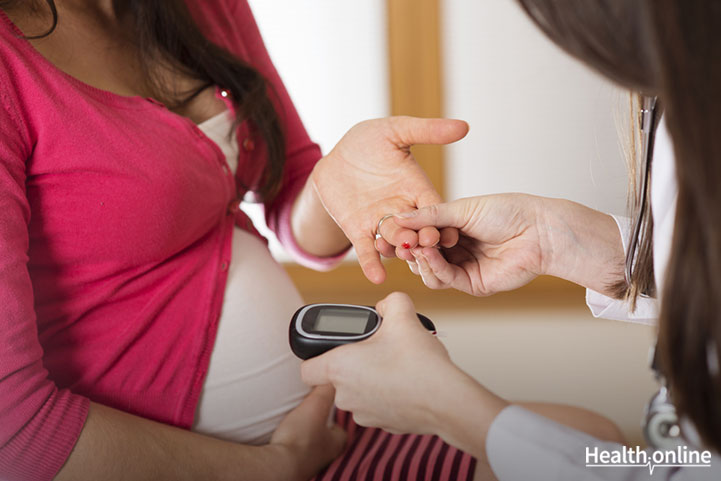
Diabetes in Pregnancy: Everything You Need to Know
Diabetes in pregnancy is a serious issue that warrants immediate attention. To explain it in simple terms, diabetes in pregnancy is the elevation of blood sugar levels in the mother during pregnancy. It is similar to diabetes mellitus, but it deserves special attention because of the long term consequences, not only for the mother but also to the baby. Here are few frequently asked questions about diabetes in pregnancy.
What is gestational diabetes?
Normally, when you consume any food, the sugar levels in the blood spike. This leads to the release of insulin, that helps in metabolizing the sugar in the blood. Sugar then reduces in the blood. But during pregnancy, your body becomes resistant to the action of insulin, leading to a persistent increase in the blood sugar levels. This elevation of blood sugar levels is seen in women who are otherwise normal and have proper insulin function. Hence the name gestational diabetes. One silver lining about this diabetes is that your body will revert to its original state after pregnancy. However, your risk of developing diabetes in the future will be high.
Will I develop gestational diabetes?
Any woman who is pregnant is prone to develop diabetes in pregnancy. But a few factors might increase the risk of developing gestational diabetes. Around 8 to 10% of pregnant women have diabetes in pregnancy. There are also cases wherein women develop this condition without the following predisposing factors:
- More than 25 years old.
- Having any first-degree relative with diabetes.
- Obesity.
- Polycystic ovarian disease.
- Having suffered gestational diabetes during a previous pregnancy.
- Glucose intolerance.
- Medications like anti psychotic drugs, beta-blockers, glucocorticoids, etc
- Delivering a ‘big baby’ (overweight baby) during a previous pregnancy.
How to find out if I have gestational diabetes?
Most of the time, diabetes in pregnancy goes unnoticed. Regular screening is what helps physicians detect the gestational diabetes mellitus. This happens between 24 to 28 weeks of pregnancy. The presence of risk factors demands an early screening. If there are any doubts when it comes to diagnosing the condition, an oral glucose screening test is done. This test is to assess the response of insulin to glucose in the blood.
You may experience any of the following symptoms:
- Increased thirst.
- Urinating more often.
- Feeling very tired.
- Feeling nauseous.
- Having a blurred vision.
What if I am affected by gestational diabetes?
If not controlled, gestational diabetes will lead to the following complications:
- Preterm labor (which has its own complications)
- High blood pressure or preeclampsia.
- Macrosomia (large baby).
- Difficulty during labor (due to the large size of the baby, it may sometimes even gets stuck in the birth canal).
- Increased chances of needing a cesarean section.
- Low sugar in babies.
- Asphyxia in babies.
How to manage diabetes in pregnancy?
Management of diabetes in pregnancy begins with lifestyle changes, such controlling the intake of sugar, maintaining a proper diet and exercise plan etc.
- Your diet should have the following components:
- whole grains,
- lean proteins,
- vegetables
- A regular brisk walk daily is recommended.
If the sugar levels are still high, you can opt for insulin injections that you give yourself. Also, you must learn how to monitor your blood sugar levels.
Is a healthy pregnancy possible with diabetes?
Yes, it is. But it depends on when the diabetes is detected, your lifestyle, blood sugar levels, and other co-morbid conditions. If you have a healthy lifestyle, balanced diet, and strictly follow the instructions of the physician, you are likely to have a safe and healthy pregnancy. Monitor your blood sugar daily using home based products.
Visit your physician regularly. It will help the doctor plan the mode of pregnancy. If the baby is small, normal delivery is possible. Also, the baby should be monitored for signs of fetal distress.
If you are a first-time mom, then it is recommended that you visit your physician immediately and get your doubts clarified. Remember that you can’t be too cautious when it comes to handling diabetes in pregnancy. Have a happy and safe motherhood!




